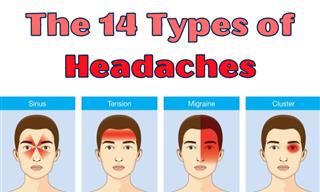One of the fastest-rising stars of the low-carb keto (or ketogenic) diet is MCT or medium-chain triglycerides. MCTs are a form of naturally-occurring fats that are shorter than typical lipid compounds, and are thus much easier for the body to break down and convert to energy, and so less likely to be stored in the body as fat.
MCTs are most commonly found in coconut oil, palm kernel oil and dairy products. However, coconut oil and dairy products are also rich in saturated fats that increase levels of “bad” cholesterol, and palm kernel oil is harvested through incredibly unethical methods that are disastrous to the environment and are threatening to kill off several endangered species, including the orangutan.
But that doesn’t mean you should give up on MCTs, as these beneficial fats are also available as a standalone product with a much smaller volume of saturated fats. MCT oil can be a terrific alternative for mainstream cooking oils, and as long as the product you’re using is derived from coconuts, your conscience shouldn’t be bothering you. But why are these good for us to begin with?
1. It promotes weight loss
There are several reasons why MCT oil could help you reach your weight-loss gains. For one, the body breaks down MCTs a lot faster than other fats and can use it as an instant source of energy, which, as mentioned, can prevent the accumulation of fat tissue in the body.
Secondly, MCT consumption has been shown to promote the release of “fullness” hormones which will keep you from snacking or eating overly large helpings of food. It also appears to have a beneficial effect on gut health.
Finally, MCT has been shown in several different studies to be an effective means to lose weight, and more specifically shed off adipose tissue in obese men. This, in turn, could be critical in promoting a healthier heart, and reduced chances of contracting cardiovascular disease.
2. It’s a great substitute for carbs
Because of its faster breakdown rate, MCT makes for a terrific source of energy that can also promote ketosis, the process in which the body burns excess fat for energy, in lieu of carbohydrates.
Additionally, MCT reduces the buildup of lactic acid during intense physical exertion, which can cause sore and weak muscles following exercise. Lactate buildup is the result of the body breaking down carbs at a breakneck pace. Because you’re using fat instead of carbs, lactic acid levels dropdown.
3. It can prevent bacterial and yeast infections
MCTs appear to possess antibacterial and antifungal effects, as they appear to kill off infectious fungi such as several yeast species, as well as several types of disease-causing bacteria, particularly ones that affect the gastrointestinal tract.
4. It could help prevent epileptic seizures
Weight loss isn’t the only reason to incorporate MCT oil in your kitchen. As mentioned before, MCT oil consumption promotes ketosis, which, beyond burning fat burning, also increases the production of ketone bodies, molecules derived from fatty acids that are capable of empowering brain function. Several pieces of research have shown that higher ketone production was associated with decreased seizures in people suffering from epilepsy.
5. It might help to stave off Alzheimer’s
While studies on the topic are still rudimentary, and further research is needed to make substantive claims, there is reason to believe ketosis can help in preventing or mitigating brain decay in neurodegenerative conditions such as Alzheimer’s. The reason is one of the characteristics of Alzheimer’s is a reduced ability of the brain to absorb energy from carbohydrates. By reducing brain dependency on sugars and supplementing it with ketone bodies, we could potentially improve brain function in people with Alzheimer’s.
 Go to BabaMail
Go to BabaMail



 Source:
Source: 


























